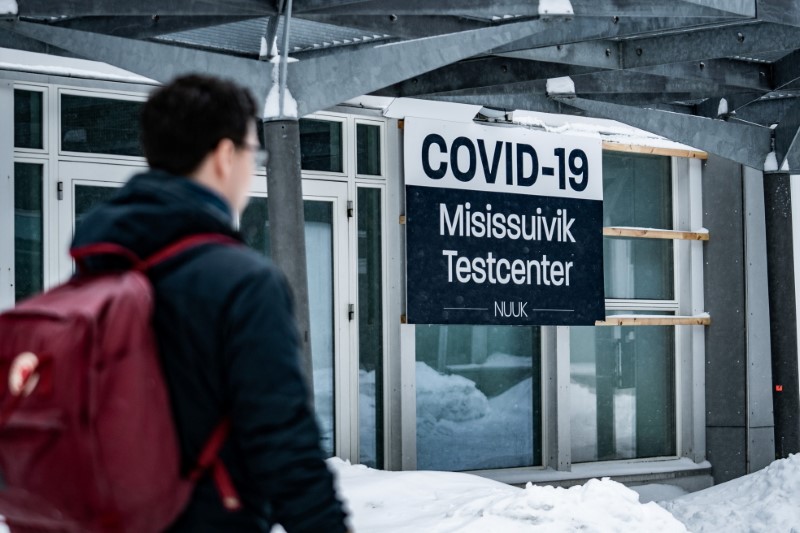As Greenland’s COVID outbreak shows signs of slowing, officials warn against easing up
Most people getting sick in the latest outbreak are unvaccinated, the chief medical officer said.

With more than a hundred active cases of COVID-19, Greenland remains in the midst of it most serious outbreak of the illness, but a dip in the infection rate in the current outbreak’s hotspot may signal that the worst is over, health officials say.
As of Sunday, 74 people in Sisimiut were reporting symptoms of COVID-19. In many cases, public health authorities were unable to trace the path of infection, leading to a decision last week to ban sales of alcohol in the town this past weekend, and to postpone the planned start of the school term on August 10.
The improving situation means schools in Sisimiut could open Monday, but Henrik L. Hansen, the chief medical officer, warned that with 53 new cases of COVID-19 reported in the past week, the risk of infection was far from over.
“We are still seeing a lot of cases with an unidentifiable source of infection,” Hansen said. “People should still be extremely careful and get tested if they are showing symptoms or have been with someone who has tested positive.”
[Greenland to require vaccination for foreign travellers]
No new cases were reported nationally on Sunday. That comes after two consecutive days of declines. Nationally, the number of new daily cases reached its highest to date on Thursday, when 20 were reported.
In Sisimiut, the number of new cases reached a peak of 11 on Friday, and fell to six on Saturday.
“A lot of people were tested, and our interpretation is that the outbreak is on the wane,” Hansen said.
Since August 3, half of the of residents of Sisimiut have been tested for COVID-19. That, combined with a high vaccination rate nationally, particularly among young people, had helped to prevent an even larger outbreak.
“During the current outbreak, most of the people who are getting sick are unvaccinated. I can’t encourage people enough to get vaccinated; it is the best way to stop an outbreak.”